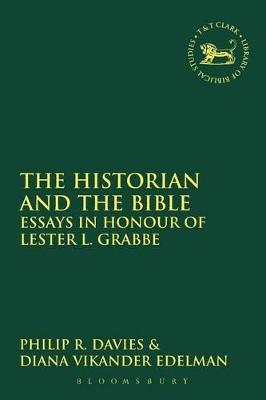Library of Hebrew Bible/Old Testament Studies
2 primary works • 3 total works
Book 121
A sustained close reading of 1 Samuel 8 to 2 Samuel 1 from the perspective of the intended ancient audience. A conscious effort is made here to read and understand the text 'through the eyes of an ancient Israelite', to the extent that the world-view and idioms of late seventh-century Judah can be reconstructed. The study reveals a coherent, carefully developed narrative of Saul's career as the first king of Israel.
Book 530
Lester Grabbe is probably the most distinguished, and certainly the most prolific of historians of ancient Judaism, the author of several standard treatments and the founder of the European Seminar on Historical methodology. He has continued to set the bar for Hebrew Bible scholarship.
In this collection some thirty of his distinguished colleagues and friends offer their reflections on the practice and theory of history writing, on the current controversies and topics of major interest. This collection provides an opportunity for scholars of high caliber to consider groundbreaking ideas in light of Grabbe's scholarship and influence. This festschrift offers the reader a unique volume of essays to explore and consider the far-reaching influence of Grabbe on the field of Biblical studies as a whole.
In this collection some thirty of his distinguished colleagues and friends offer their reflections on the practice and theory of history writing, on the current controversies and topics of major interest. This collection provides an opportunity for scholars of high caliber to consider groundbreaking ideas in light of Grabbe's scholarship and influence. This festschrift offers the reader a unique volume of essays to explore and consider the far-reaching influence of Grabbe on the field of Biblical studies as a whole.
Six scholars explore the nature of history and historical reconstruction and the place of history within biblical studies. The uncritical use of both text and artifact that continues to dominate histories of Israel and Judah testifies to the need for a wider grassroots awareness of the basic issues involved in doing history as a biblical scholar. A growing number of scholars are questioning the theoretical underpinnings of the main 'schools' of research and are calling for an approach that makes a more critical evaluation of both textual and artifactual material before using it in historical reconstruction. These essays were first presented at the annual SBL/ASOR meeting in 1989 in a symposium entitled 'The Role of History and Archaeology in Biblical Studies'.

